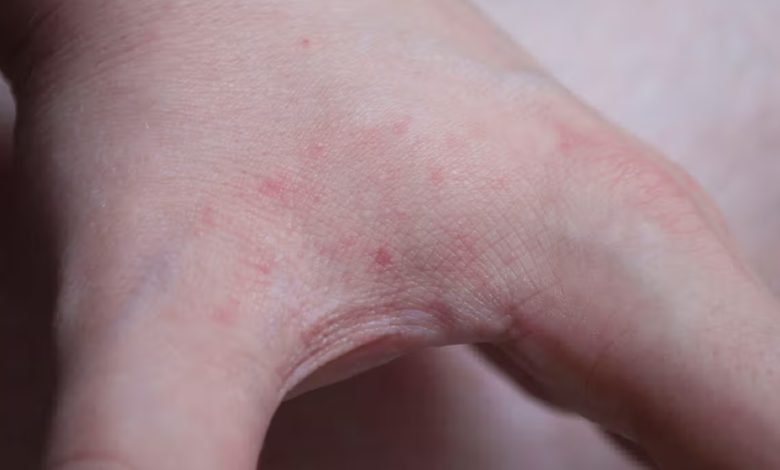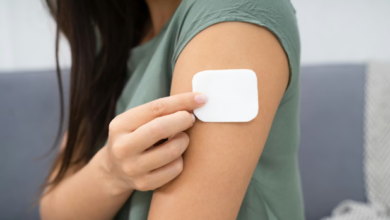Bed Bug Bite Scars: How to Prevent and Treat Them

Bed bugs are small, reddish-brown parasitic insects that feed on the blood of humans and animals. While their bites are generally not dangerous, they can cause significant discomfort and lead to scarring if not treated properly. For many people, the physical evidence of these bites—itchy welts, skin inflammation, and eventually scars—can be both embarrassing and emotionally distressing. Understanding how to prevent and treat bed bug bite scars is essential for maintaining healthy skin and peace of mind.
Understanding Bed Bug Bites
Bed bugs usually bite during the night, often targeting exposed skin such as the face, neck, arms, and legs. The bites are typically painless at first but turn into itchy, red bumps after a few hours or days. While some people may not react at all, others may experience severe allergic reactions, including swelling, blistering, or even anaphylaxis in rare cases.
These bites usually appear in a linear or clustered pattern and may resemble mosquito bites, making them hard to distinguish at times. Excessive scratching or improper treatment can lead to skin infections and, ultimately, scarring.
Why Do Bed Bug Bites Leave Scars?
Not everyone will develop scars from bed bug bites ( væggelus bid ). However, certain factors increase the likelihood, such as:
- Excessive scratching: Scratching the bites can break the skin, allowing bacteria to enter and cause infections. This, in turn, can lead to scarring.
- Allergic reactions: People with sensitive skin or allergies may experience more severe skin responses, which can increase the chance of scars forming.
- Delayed healing: If a bite becomes infected or is not cared for properly, the healing process can take longer, increasing the likelihood of pigmentation changes and scars.
- Skin type and genetics: Some individuals are more prone to hyperpigmentation or keloid formation, making them more susceptible to scarring even after minor skin trauma.
See also: How a Dietitian Can Help You Achieve Your Health Goals
How to Prevent Bed Bug Bites
The best way to avoid scarring from bed bug bites is to prevent the bites in the first place. Here are some tips to minimize your risk:
1. Inspect Living Spaces Regularly
Check your mattress, bed frame, and furniture for signs of bed bugs, such as tiny reddish stains, dark fecal spots, shed skins, or the bugs themselves. Early detection can prevent a full-blown infestation.
2. Use Protective Bedding
Encase your mattress and box spring in bed bug-proof covers. These encasements prevent bed bugs from hiding in your bed and biting you at night.
3. Maintain Cleanliness
Regularly vacuum carpets, furniture, and curtains. Wash bedding and clothing in hot water and dry them on high heat to kill any hidden bugs.
4. Be Cautious While Traveling
Inspect hotel rooms before settling in. Keep your luggage off the floor and use a luggage rack if possible. When returning home, wash and dry all clothes from your suitcase immediately.
Immediate Treatment of Bed Bug Bites
If you do get bitten, how you handle the bites in the early stages can make a big difference in whether scars develop later.
1. Clean the Area
Wash the bite sites with soap and warm water to reduce the risk of infection. Pat the skin dry with a clean towel.
2. Apply an Anti-Itch Cream
Use over-the-counter creams like hydrocortisone or calamine lotion to relieve itching. This will help you resist the urge to scratch and prevent further skin damage.
3. Take Antihistamines
Oral antihistamines like diphenhydramine (Benadryl) can help reduce itching and swelling, especially for those with allergic reactions.
4. Avoid Scratching
It can be difficult, but avoiding scratching is crucial. Keeping your nails short and wearing gloves at night can help if you’re a habitual scratcher while asleep.
Treating Bed Bug Bite Scars
If scars have already formed, don’t worry—there are several effective treatments to reduce their appearance and improve skin health.
1. Topical Scar Creams
Over-the-counter creams containing ingredients like silicone, vitamin E, or onion extract (e.g., Mederma) can help reduce scar visibility over time. Apply as directed, usually once or twice daily.
2. Natural Remedies
Certain natural ingredients are known for their skin-healing properties. Some popular choices include:
- Aloe vera: Known for its soothing and healing effects, it can help reduce inflammation and lighten scars.
- Honey: A natural humectant and antibacterial agent, honey can aid in tissue regeneration.
- Coconut oil: Rich in fatty acids, it helps moisturize the skin and promote healing.
While natural remedies can be helpful, results may vary and often take time.
3. Chemical Peels
Chemical peels involve the application of a chemical solution to exfoliate the top layers of skin, encouraging new, healthier skin to replace the scarred areas. This should only be done by a licensed dermatologist or skincare professional.
4. Laser Treatments
Laser therapy is one of the most effective methods for reducing scars, particularly hyperpigmented ones. It works by targeting melanin in the skin and stimulating collagen production. Multiple sessions may be required, and this option can be expensive.
5. Microneedling
Microneedling uses tiny needles to create micro-injuries in the skin, stimulating collagen production and helping scars fade. It’s a popular treatment for acne scars and can be effective for bed bug bite( væggelus bid ) scars as well.
When to See a Doctor
If your bites become infected, don’t heal properly, or cause severe allergic reactions, it’s best to consult a medical professional. A dermatologist can offer prescription medications, antibiotics, or advanced treatments tailored to your skin type and condition.
Emotional Impact of Bed Bug Bites and Scars
Beyond the physical discomfort, bed bug bites and the resulting scars can take an emotional toll. They may affect your self-esteem, especially if scars are visible on your face or other exposed areas. Anxiety about future infestations or sleeping in your own bed is also common.
Practicing self-care and seeking medical advice when needed can help alleviate these concerns. In some cases, speaking to a therapist or counselor may be beneficial for coping with stress and anxiety.
Final Thoughts
Bed bug bite scars are an unfortunate but manageable consequence of an infestation. Prevention is always the best strategy—maintain cleanliness, inspect your home regularly, and take precautions when traveling. If you do get bitten, prompt treatment can prevent complications and reduce the chances of scarring. And if scars do form, a wide array of treatments—from topical creams to advanced dermatological procedures—can help restore your skin and confidence.





